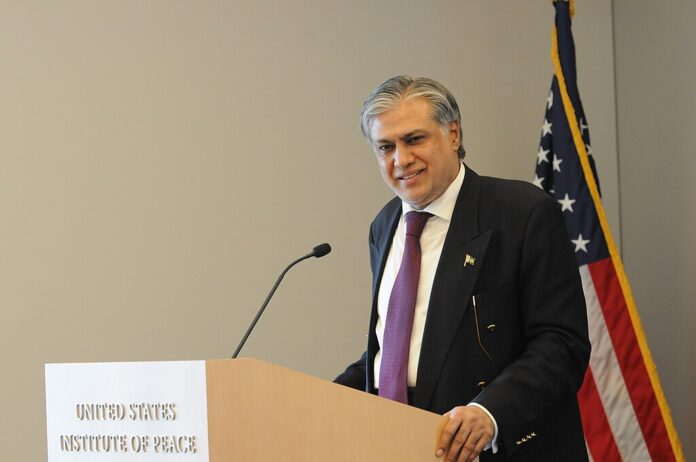Deputy Prime Minister Ishaq Dar urges reconsideration of strained relations following Indian government’s inauguration
Pakistan’s Deputy Prime Minister Ishaq Dar issued a call for “sober reflection” on the future of Pakistan-India relations in the wake of Indian Prime Minister Narendra Modi and his ministers taking oath for their new term. The inauguration ceremony took place amid ongoing tensions between the two nuclear-armed neighbours, exacerbated since India’s decision in 2019 to revoke the autonomy of the disputed Jammu and Kashmir region.
The event, marking the swearing-in of Modi and his Council of Ministers in India’s parliament, underscored the persisting friction between India and Pakistan, who both claim sovereignty over the Himalayan region but administer distinct parts of it. The historical context of conflicts, including three wars since independence from British rule in 1947, continues to cast a shadow over bilateral relations.
Embed from Getty ImagesPakistan responded to India’s actions in 2019 by downgrading diplomatic ties and suspending trade, demanding a reversal of the autonomy decision as a precondition for normalization. India, however, has stood firm on its stance, refusing to reconsider its policy on Kashmir.
Addressing concerns at an event in Islamabad, Deputy Prime Minister Dar acknowledged the longstanding troubled history between Pakistan and India but emphasized Pakistan’s desire for constructive engagement based on mutual respect and a just resolution to the Kashmir dispute. He reiterated Pakistan’s stance against what it perceives as unilateral actions by India and its commitment to regional stability, warning against any military provocations.
In addition to its stance on India, Dar discussed Pakistan’s approach towards Afghanistan, urging Kabul to address Pakistan’s security concerns. Relations between the two countries have strained since the Taliban’s takeover in 2021, with Pakistan accusing Afghanistan of harbouring militants responsible for cross-border attacks.
Regarding Pakistan’s strategic partnerships, Dar highlighted efforts to enhance the China-Pakistan Economic Corridor (CPEC), a flagship project under China’s Belt and Road Initiative aimed at modernizing Pakistan’s infrastructure and economy. Despite recent security challenges, including attacks on Chinese nationals in Pakistan, Dar reaffirmed Pakistan’s commitment to ensuring the safety of Chinese personnel and projects.
Looking ahead, Dar outlined Pakistan’s diplomatic priorities, including strengthening ties with Gulf states, Turkey, Iran, and Central Asia to boost foreign investment and regional connectivity. The establishment of the Special Investment Facilitation Council underscores Pakistan’s efforts to attract foreign investment in key economic sectors.
Analysis:
Political Perspective: The strained relations between Pakistan and India continue to be influenced by historical conflicts and contemporary geopolitical strategies. Pakistan’s call for reflection signals a diplomatic manoeuvre to recalibrate its approach towards India amidst regional power dynamics and internal political pressures.
Social Perspective: Societal debates within both countries reflect deep-rooted nationalistic sentiments and historical grievances, influencing public perceptions of bilateral relations. The Kashmir issue remains a focal point, impacting public discourse on sovereignty and conflict resolution.
Economic Perspective: Economically, the stability of Pakistan-India relations is crucial for regional trade and investment. Pakistan’s efforts to enhance CPEC underscore its strategic alignment with China and ambitions for economic development, despite security challenges affecting foreign investments.
